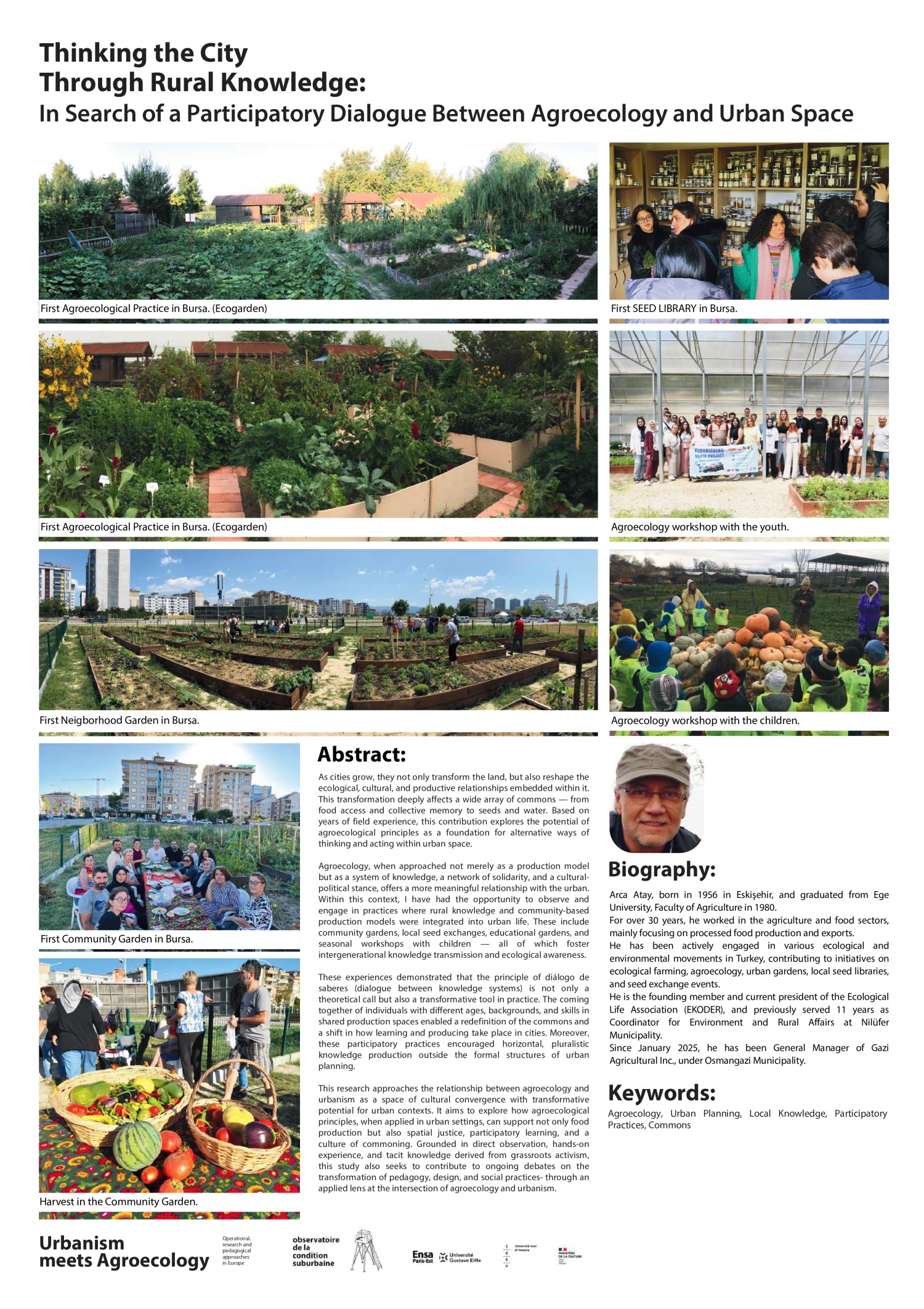Thinking the City Through Rural Knowledge
In Search of a Participatory Dialogue Between Agroecology and Urban Space
As cities grow, they not only transform the land, but also reshape the ecological, cultural, and productive relationships embedded within it. This transformation deeply affects a wide array of commons — from food access and collective memory to seeds and water. Based on years of field experience, this contribution explores the potential of agroecological principles as a foundation for alternative ways of thinking and acting within urban space.
Agroecology, when approached not merely as a production model but as a system of knowledge, a network of solidarity, and a cultural-political stance, offers a more meaningful relationship with the urban. Within this context, I have had the opportunity to observe and engage in practices where rural knowledge and community-based production models were integrated into urban life. These include community gardens, local seed exchanges, educational gardens, and seasonal workshops with children — all of which foster intergenerational knowledge transmission and ecological awareness. These experiences demonstrated that the principle of diálogo de saberes (dialogue between knowledge systems) is not only a theoretical call but also a transformative tool in practice. The coming together of individuals with different ages, backgrounds, and skills in shared production spaces enabled a redefinition of the commons and a shift in how learning and producing take place in cities. Moreover, these participatory practices encouraged horizontal, pluralistic knowledge production outside the formal structures of urban planning. This research approaches the relationship between agroecology and urbanism as a space of cultural convergence with transformative potential for urban contexts. It aims to explore how agroecological principles, when applied in urban settings, can support not only food production but also spatial justice, participatory learning, and a culture of commoning. Grounded in direct observation, hands-on experience, and tacit knowledge derived from grassroots activism, this study also seeks to contribute to ongoing debates on the transformation of pedagogy, design, and social practices- through an applied lens at the intersection of agroecology and urbanism.
Arca Atay, born in 1956 in Eskişehir, and graduated from Ege University, Faculty of Agriculture in 1980. For over 30 years, he worked in the agriculture and food sectors, mainly focusing on processed food prduction and exports. He has been actively engaged in various ecological and environmental movements in Turkey, contributing to initiatives on ecological farming, agroecology, urban gardens, local seed libraries, and seed exchange events. He is the founding member and current president of the Ecological Life Association (EKODER), and reviously served 11 years as Coordinator for Environment and Rural Affairs at Nilüfer Municipality. Since January 2025, he has been General Manager of Gazi Agricultural Inc., under Osmangazi Municipality.
← go back to
the programme
Affiche scientifique →
voir l'affiche en grand
